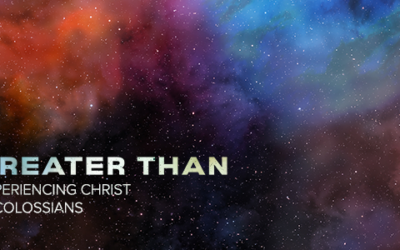Lisa Sheffler, author
In the Gospels, one of the many ways Jesus stands out is in his way with people. From Nicodemus, to Zacchaeus, to the rich young ruler, the Gospels record some intriguing conversations Jesus had with everyday folks. With love and insight, he always pointed people to the truth. As his followers, we should want to do the same.
For the rest of the week we are going to study the encounter Jesus had with a Samaritan woman. By impacting this one woman, many people in her town received the good news. Notice about how Jesus loves, listens, discerns, and responds. Let’s see what we can learn from Jesus about helping others find and follow Christ.
Read
John4:6-15
6 Jacob’s well was there, and Jesus, tired as he was from the journey, sat down by the well. It was about noon.
7 When a Samaritan woman came to draw water, Jesus said to her, “Will you give me a drink?” 8 (His disciples had gone into the town to buy food.)
9 The Samaritan woman said to him, “You are a Jew and I am a Samaritan woman. How can you ask me for a drink?” (For Jews do not associate with Samaritans.)
10 Jesus answered her, “If you knew the gift of God and who it is that asks you for a drink, you would have asked him and he would have given you living water.”
11 “Sir,” the woman said, “you have nothing to draw with and the well is deep. Where can you get this living water? 12 Are you greater than our father Jacob, who gave us the well and drank from it himself, as did also his sons and his livestock?”
13 Jesus answered, “Everyone who drinks this water will be thirsty again, 14 but whoever drinks the water I give them will never thirst. Indeed, the water I give them will become in them a spring of water welling up to eternal life.”
15 The woman said to him, “Sir, give me this water so that I won’t get thirsty and have to keep coming here to draw water.”
What metaphor does Jesus use to explain spiritual truth?
In verse 11, who does the woman invite Jesus to compare himself to?
Reflect
One of the implications of the gospel that shocked the first century was the idea that God’s salvation was in no way dependent on race, ethnicity, class, or gender. Jesus demonstrates that truth beautifully here. The Samaritans were considered by the Jews to be “half-breeds.” Centuries before, the Assyrians had forced the resettlement of Samaria with foreigners from other conquered lands.[1] They had intermingled with the Israelites left there after the Assyrian exile, and they had developed their own take on Jewish religious practices. The Jews despised the Samaritans, and the feeling was mutual. Just by speaking to a Samaritan, Jesus was crossing a significant ethnic boundary — but that wasn’t the only one he was crossing.
In that day, Jewish men avoided talking to women in public. They certainly didn’t discuss deep theological truths with them. But Jesus consistently breaks with this custom by inviting women to be among his disciples. Simply by talking to her, Jesus was showing love.
We’ve lived through droughts here in North Texas, and although our lawns may have suffered, no one died because of it. For people in ancient times living in the desert having a consistent source of fresh (or “living”) water was life or death. The well Jesus and the woman are standing next to was a vital resource for the community, and visiting it was a necessary, daily chore. By offering her “living water,” Jesus has not only piqued her interest, but he’s given her a metaphor that she can easily relate to.
We can learn a great deal from Jesus’ approach. When we talk to people about Jesus, we need to help them bridge the spiritual truth of the gospel with their everyday life. We have to meet people where they are and illustrate how the gospel is something they want and need. The Bible frequently connects us to spiritual realities just beyond our view by comparing them to things in our lives now.
In his book on evangelism, Jonathan Dodson thinks many people understand the basic story of the gospel, but because they can’t relate to it, they find it unbelievable. He makes this observation:
“For many people today, hearing that Jesus died on the cross for their sins is entirely irrelevant. It is an abstract concept that doesn’t connect with the heart. It’s our job to show them how it does. When we speak to people’s deepest desires, dreams, hopes, fears, or longings, we make the gospel believable.”[2]
As we listen to people and get to know them and their struggles, we must ask the Spirit for discernment so we can help connect the gospel to their lives. One way is to paint a picture of how the truth of Jesus Christ speaks to their circumstances.[3] That’s what Jesus does for this Samaritan woman.
Jesus invites the woman to know who he really is. He paints this woman a picture of an unending flow of precious, living water. Imagine having your thirst quenched with a never-ending spring of water that wells up from within? What would it mean to never thirst again? To rest, satisfied and content?
That’s what Jesus offers our thirsty souls. No fear. No lack. But the life-giving Spirit who will meet our needs for all eternity.
The Samaritan woman is definitely interested in what Jesus has to say. “Sir, give me this water so that I won’t get thirsty and have to keep coming here to draw water” (verse 15). Still thinking he’s talking about actual water, she hasn’t yet understood that there is much more to Jesus than meets the eye. We’ll hear Jesus’ surprising response tomorrow.
[1] M. G. Easton, Easton’s Bible Dictionary (New York: Harper & Brothers, 1893).
[2] Jonathan Dodson, The Unbelievable Gospel: Say Something Worth Believing (Kindle Edition, Grand Rapids MI, Zondervan, 2015) p. 50.
[3] For a useful discussion of using metaphors to help people connect with the gospel, see Jonathan Dodson’s book.
Respond
What “outcasts” can you identify in our community? Who are modern equivalents of the Samaritan woman?
Who do you know who needs to know Jesus, the source of living water? Pray for them right now and ask the Father for opportunities to share the good news with them.
Mission Partner Spotlight
Today we’re continuing to highlight some of the global workers that Christ Fellowship supports.
Jolene Balazs, Oral Communication Specialist, E3 Partners Ministry
Jolene says, “I have been involved in training nationals how to communicate God’s Word in culturally appropriate ways through story, song, dance, drama in Panama, Vietnam, Jordan, Siberia, Uganda, Kenya, South Sudan, Togo and Turkey.”
Because of Covid-19 has restricted travel, Jolene and her team are currently doing weekly Facebook and YouTube Live story sessions. Their team also leads Bible storying workshops locally and nationally for churches and organizations interested in communicating the gospel and Bible in a more natural way here in the USA.
To learn more about e3 Partners, visit their website.


